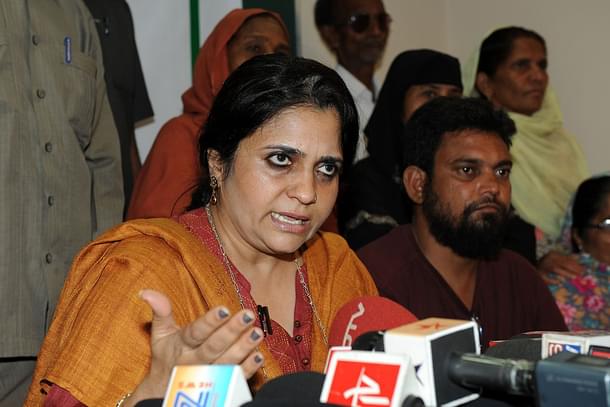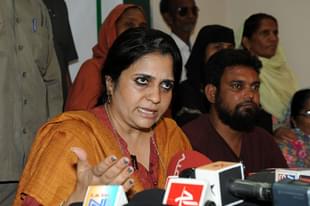Insta
Hindutva Verdict Row: Supreme Court Rejects Teesta Setalvad’s Plea, Will Not Revisit ‘95 Judgement
Swarajya Staff
Oct 26, 2016, 12:44 PM | Updated 12:44 PM IST
Save & read from anywhere!
Bookmark stories for easy access on any device or the Swarajya app.


The Supreme Court on Tuesday declined political activist Teesta Setalvad’s plea to revisit the judgement delivered on ‘Hindutva’, defining it as a ‘way of life’ in 1995. The court also refused to accept the definition peddled by a section of the political class and stated that Hindutva has nothing to do with ‘narrow fundamentalist Hindu religious bigotry’. The court slammed Setalvad, clarifying that it will not get involved in the larger issue of whether Hindutva meant Hindu religion or has a separate meaning.
The seven-judge bench, led by Chief Justice of India T S Thakur, stated that the court will only define things that constitute corrupt electoral practices under section 123(3) of The Representation of the People Act, 1951.
In her plea, Setalvad along with theater activist and author Shamsul Islam and journalist Dilip Mandal said that the interpretation given in the December 11, 1995 judgment by Justice J.S. Verma has led to ‘Hindutva becoming a mark of nationalism and citizenship.’
In his 1995 judgment, Justice Verma had concluded that terms `Hindu’, `Hindutva’ and `Hinduism’ can’t be defined precisely and can’t be confined to the narrow limits of religion alone. Classifying Hindutva as a way of life of the people in the sub- continent, Verma had dismissed the idea of equating the abstract terms Hindutva or Hinduism with the “narrow fundamentalist Hindu religious bigotry”.
Setalvad, an alleged violator of Foreign Contribution Regulations Act, had said in her plea that the apex court’s interpretation of Hindutva/Hinduism has today led to ‘demands of homogenisation and assimilation of minority communities and SC/ST in the Hindutva way of life.’





